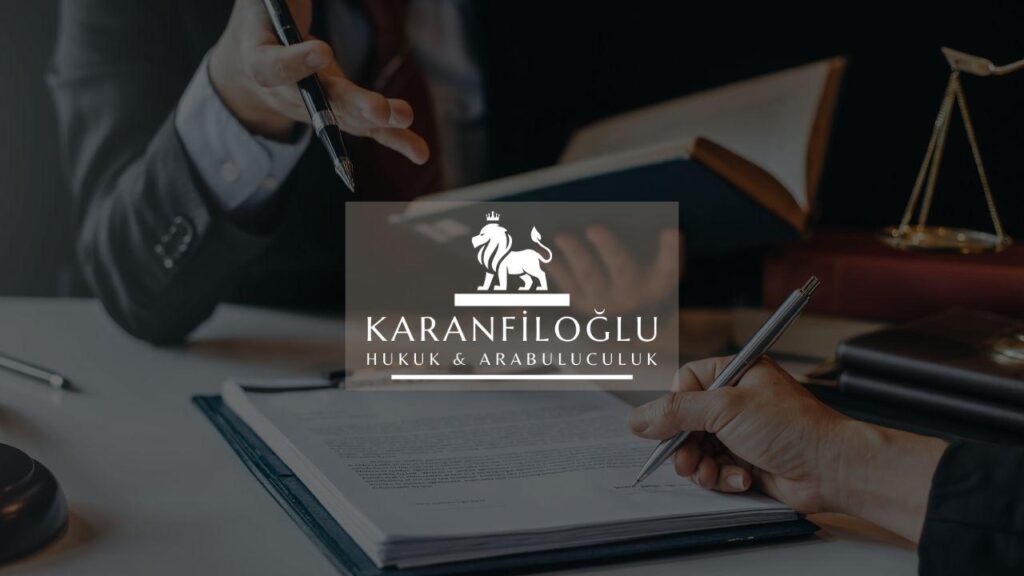In a dynamic corporate environment, safeguarding a company from employee lawsuits requires diligent compliance with labor laws and regulations. Under Turkish law, the primary legislative framework governing employment relations is the Labor Law No. 4857, which addresses various aspects, including employee rights, workplace conditions, and termination procedures. Additionally, the Code of Obligations No. 6098 outlines contractual obligations between employers and employees. Employers must also ensure adherence to Occupational Health and Safety Law No. 6331 to mitigate risks of litigation related to workplace safety. At Karanfiloglu Law Office, we understand the complexities of these regulations and the importance of robust HR policies to preempt legal disputes. Engaging in preventive measures, such as clear employment contracts and regular legal audits, can significantly reduce litigation risks. Our experienced legal team provides comprehensive consultation services to align your business practices with Turkish laws, thereby fortifying your company against potential employee lawsuits.
Understanding Employee Rights and Employer Obligations
Understanding employee rights and employer obligations is crucial for maintaining a harmonious and lawful workplace environment. Under the Turkish Labor Law No. 4857, employees are entitled to specific rights such as fair compensation, regulated working hours, and annual leave, ensuring their well-being and productivity. Employers are required to provide written employment contracts that outline the terms of employment, including job descriptions, salary, and working conditions, as stipulated in Articles 8 and 9 of the Code of Obligations No. 6098. Additionally, employers must create a safe working environment by complying with Occupational Health and Safety Law No. 6331, Article 3, which mandates the implementation of measures to prevent occupational risks and provide necessary training. Understanding and adhering to these legal requirements not only fulfills statutory obligations but also fosters trust and reduces the likelihood of legal disputes. By proactively addressing these obligations, companies can better protect themselves from potential employee lawsuits.
Besides statutory rights and obligations, Turkish law emphasizes fair treatment and non-discrimination in the workplace. The Labor Law No. 4857, under Article 5, prohibits discrimination based on language, race, gender, political opinion, philosophical belief, religion, or similar grounds. Employers must ensure equality in all aspects of employment, including hiring, remuneration, promotion, and termination procedures. Moreover, the same article mandates equal pay for equal work, thus requiring that women and men receive equal compensation for equivalent roles. Employers failing to comply with these anti-discrimination principles may face legal challenges and financial liabilities. Furthermore, Article 9 of the Occupational Health and Safety Law No. 6331 encourages creating an inclusive safety culture, promoting the participation of all employees in health and safety measures irrespective of their backgrounds. By fostering an equitable workplace environment, businesses mitigate the risk of employee lawsuits, thereby preserving their reputation and operational integrity.
For companies operating in Turkey, maintaining well-documented disciplinary processes and consistent enforcement of company policies is critical to minimizing legal risks associated with employee grievances. The Labor Law No. 4857, particularly Articles 25 and 26, outline the justifiable reasons and procedures for employee termination. Employers must document all incidents leading up to disciplinary actions or terminations to demonstrate compliance and fairness, thereby reducing the chance of arbitrary dismissal claims. Regularly scheduled performance reviews, clear feedback mechanisms, and transparent communication channels help in managing expectations and reducing misunderstandings that could escalate into legal disputes. At Karanfiloglu Law Office, we advise organizations on best practices for effective documentation and offer guidance on dealing with employee discipline issues. By fostering an environment of transparency and adhering to legal protocols, employers not only safeguard their interests but also cultivate a positive organizational culture that emphasizes mutual respect and accountability.
Key Strategies to Mitigate Legal Risks
Implementing precise and comprehensive employment contracts is paramount to mitigating legal risks under Turkish law. These contracts should explicitly outline job roles, responsibilities, compensation, working hours, and termination procedures as stipulated by Labor Law No. 4857. Employers should ensure that employment contracts are in alignment with both the Labor Law and the Code of Obligations No. 6098, particularly focusing on clauses related to confidentiality, non-competition, and dispute resolution. Additionally, well-documented performance evaluations can serve as critical evidence to address any claims of wrongful termination or unfair treatment, reducing the likelihood of disputes escalating to lawsuits. At Karanfiloglu Law Office, our expert team assists businesses in drafting contracts that are not only legally compliant but also tailored to minimize the risk of employee grievances. Through meticulous contract management, companies can preemptively address potential legal pitfalls, enhancing stability and trust in employer-employee relationships.
Another pivotal strategy in mitigating legal risks involves fostering a safe and healthy workplace environment, as mandated by the Occupational Health and Safety Law No. 6331. Employers are legally obligated to conduct thorough risk assessments and implement necessary measures to prevent workplace accidents and occupational diseases. Regular training sessions on safety protocols and emergency procedures, combined with consistent monitoring, are crucial in maintaining compliance. Furthermore, creating an open communication channel for employees to report hazards can proactively resolve safety issues before they lead to legal disputes. The implementation of a comprehensive health and safety management system not only ensures regulatory compliance but also promotes employee well-being, thereby reducing absenteeism and enhancing productivity. At Karanfiloglu Law Office, we provide guidance and support to ensure your workplace adheres to these safety standards, significantly diminishing the risk of expensive litigation and contributing to a positive corporate culture.
Regular legal audits and compliance reviews form a crucial strategy for mitigating legal risks associated with employee lawsuits. Conducting these audits allows businesses to identify potential areas of non-compliance with the Labor Law No. 4857, Code of Obligations No. 6098, and Occupational Health and Safety Law No. 6331, enabling corrective measures before any legal issues arise. Companies can benefit from establishing an internal compliance team or working with external legal experts, like those at Karanfiloglu Law Office, to ensure ongoing adherence to Turkish employment laws and regulations. Tailored legal audits can cover various elements, such as employment practices, workplace safety procedures, and HR policies, ensuring they are up-to-date with any legislative changes. Additionally, educating management and staff on legal compliance fosters an environment of accountability and diligence. These efforts not only help protect against potential lawsuits but also enhance operational efficiency, as a legally compliant workplace is often more harmonious and productive.
Selecting the Right Legal Representation in Turkey
Choosing the right legal representation in Turkey is a critical step in effectively navigating employee-related legal challenges. A competent legal team, such as Karanfiloglu Law Office, should have extensive experience in employment law and a deep understanding of regulations like the Labor Law No. 4857 and Code of Obligations No. 6098. This expertise ensures that your company’s HR policies and procedures are not only compliant with the current legal frameworks but are also strategically tailored to mitigate risks of litigation. Legal representatives should be proactive in conducting regular compliance audits and providing timely advice on any legislative updates, thereby enabling businesses to stay ahead of potential legal pitfalls. Furthermore, choosing a legal partner who prioritizes communication and transparency can facilitate a smoother, more informed decision-making process, ensuring that your company’s interests are effectively protected in the face of any employee dispute.
In selecting the right legal representation, it is vital to prioritize firms that offer a comprehensive suite of services, extending beyond mere defense in lawsuits to encompass preventive legal care. At Karanfiloglu Law Office, we emphasize the importance of holistic legal strategies that include drafting and reviewing employment contracts and advising on regulatory compliance, particularly with respect to the Labor Law No. 4857 and Occupational Health and Safety Law No. 6331. These proactive measures are crucial in establishing sound employer-employee relationships and minimizing the likelihood of disputes. Additionally, a reputable legal firm should possess a robust track record of successful case outcomes in employment law, reflecting their capability to effectively navigate the intricacies of such cases. Trust and confidence in your legal team can significantly enhance your company’s ability to manage disputes efficiently and maintain its reputation in the business community.
Ultimately, the selection of legal representation should be viewed as a strategic investment in your company’s future, ensuring sustained compliance and resilience against potential employee lawsuits. At Karanfiloglu Law Office, we pride ourselves on building long-term partnerships with our clients, focusing on customized legal solutions tailored to the unique needs of each business. Our team stays abreast of changes in Turkish employment law and actively engages with clients to align their practices with evolving legal standards, such as those stipulated in the Code of Obligations No. 6098. By fostering an environment of proactive legal risk management, we help businesses not only respond effectively to disputes but also preemptively avert them. Trusting us as your legal partners means receiving unparalleled support and advocacy, ensuring your company thrives while remaining secure from the complexities of employee-related legal challenges.
Disclaimer: This article is for general informational purposes only and you are strongly advised to consult a legal professional to evaluate your personal situation. No liability is accepted that may arise from the use of the information in this article.







